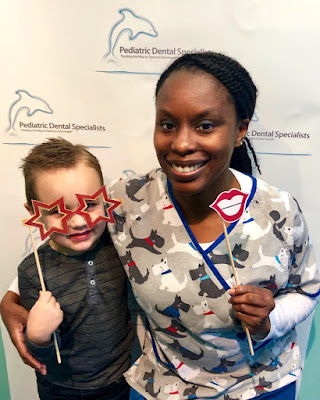Patients who undergo orthodontic treatment are able to have their orthodontic wires removed for dental cleanings and then have their braces adjusted during the same visit by the orthodontist. This service enables you to make fewer visits to the dentist during your child’s orthodontic treatment by having all the care in one office.
This month, is National Nutrition Month and while there are many healthy foods that serve our body and smile well, there are various foods that we should steer clear from. They can harm our enamel, disrupt our orthodontic treatment and can negatively impact our smile, by causing bacteria and cavities.
1. Sports Drinks - Sports Drinks are notorious for having so much sugar, even if they are labeled “natural” or “healthy.” “The bacteria get energy from the sugar, but in the process produce acid. The acid they make can damage teeth, causing cavities to form or erosion to occur,” according to American Dental Association.
2. Lemon / Acidic Foods - Our enamel is stronger than our bones, which means it has an important role in keeping our tooth safe. Limit your acidic food intake as it can erode the enamel.
3. Sticky Foods - Stay away from sticky foods if you have braces. However if you are just enjoying a snack, sticky foods may not be the route to go towards. Sticky foods remain on our teeth longer, thus contributing to bacteria and cavities, especially if it is filled with sugar.
4. Crunchy Foods (Chips) - Everyone's go to snack is more often than not something crunchy such as chips. This is a food to stay away from for your smile, especially if you just received braces. Chips get stuck on our teeth and crunchy foods in general can damage our teeth.
There are various foods that can benefit our smile and teeth, it is just important to be mindful of our nutrition and what goes into our mouth. You can find more foods that are appealing, but not recommended during orthodontic treatment specifically on our website.








